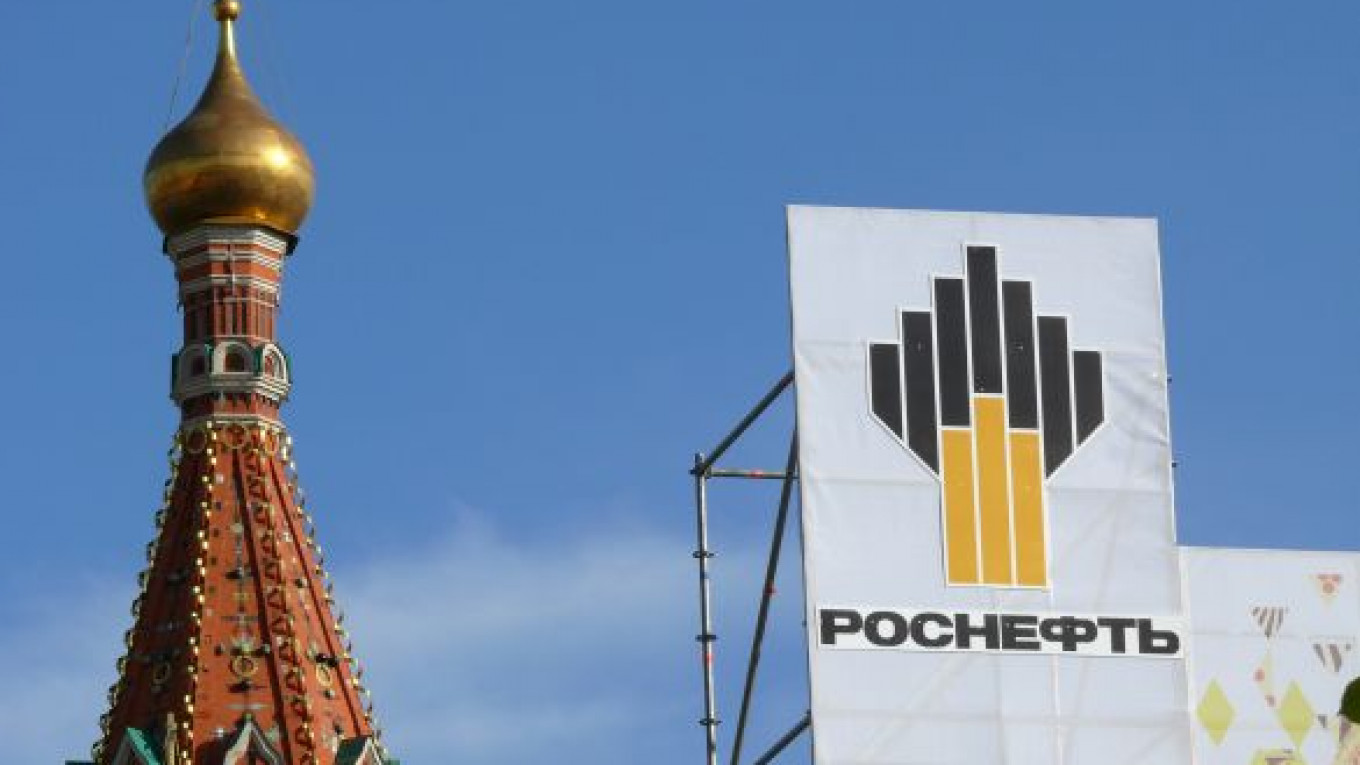Questions about how to raise up to $30 billion to finance the purchase by Rosneft of BP's 50 percent share in TNK-BP started in earnest last week when Rosneft emerged as the main bidder after announcing that it had started talks with BP on July 24.
BP put its stake in Russia's third-largest oil company — valued at $25 billion to $30 billion — up for sale on June 1 this year amid shareholder conflict after buying it for $8 billion in 2003.
"Rosneft believes that an acquisition of BP's interest in TNK-BP would be in the best interest of both Rosneft's and BP's shareholders and would lead to further development of TNK-BP," Rosneft said, adding there could be "no assurance" of a deal.
Rosneft's declaration of interest comes after AAR — BP's joint shareholder in TNK-BP — expressed an interest in buying half of BP's 50 percent stake for around $10 billion in mid-July. AAR also indicated that its preferred option would be selling to BP for cash and stock.
Bankers said Rosneft might raise most of the funding from Russian banks, with sizeable contributions available from Sberbank, VTB, Gazprombank and Alfa Bank.
"VTB and Sberbank could do $5 billion each alone, maybe even a little bit more. Russian banks will be more expensive, but we will be quicker," a Russian banker said.
Although Russian banks are burdened by high ruble-dollar foreign exchange costs, their lending firepower and government backing should not be underestimated, European lenders said.
"At the very height of the stress in the Russian financial system, the Russian banks stepped up under the guidance of the Kremlin and put down large U.S. dollar checks," a European banker said. "Maybe that was at higher rates, but they are still here."
Other bankers think that high foreign exchange costs could prevent Russian banks from taking the lead and that Rosneft could opt to tap a larger pool of international banks including U.S. and Japanese lenders.
Chinese banks' multi-billion liquidity capabilities should not be discounted either, a second European banker said.
Rosneft would need support from international lenders if it chose to raise a bridge loan that could be refinanced by a euro bond, a third European banker said.
Politics continue to play a pivotal role in the sale. Rosneft's interest in BP's 50 percent stake reflects the Kremlin's efforts to expand its control over Russia's most profitable product, which could also curb the level of foreign debt that Rosneft is willing or able to take on.
"It's not only a liquidity issue, but a political one," a second Russian banker said.
A Message from The Moscow Times:
Dear readers,
We are facing unprecedented challenges. Russia's Prosecutor General's Office has designated The Moscow Times as an "undesirable" organization, criminalizing our work and putting our staff at risk of prosecution. This follows our earlier unjust labeling as a "foreign agent."
These actions are direct attempts to silence independent journalism in Russia. The authorities claim our work "discredits the decisions of the Russian leadership." We see things differently: we strive to provide accurate, unbiased reporting on Russia.
We, the journalists of The Moscow Times, refuse to be silenced. But to continue our work, we need your help.
Your support, no matter how small, makes a world of difference. If you can, please support us monthly starting from just $2. It's quick to set up, and every contribution makes a significant impact.
By supporting The Moscow Times, you're defending open, independent journalism in the face of repression. Thank you for standing with us.
Remind me later.


